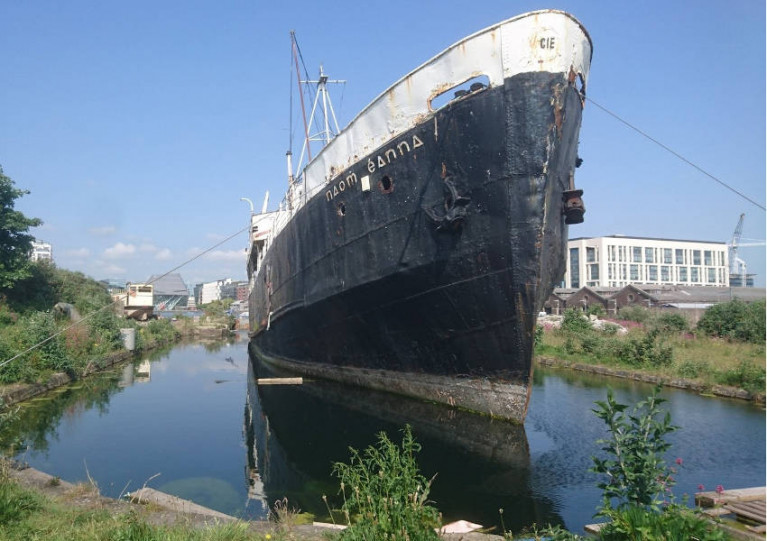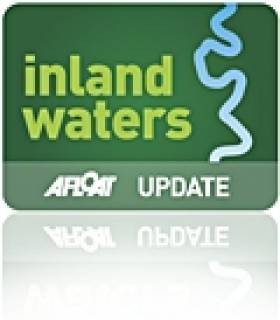Displaying items by tag: graving docks
Waterways Ireland ‘Continues to Examine Options’ for Grand Canal Graving Docks Site, Heritage Minister Says
Waterways Ireland is “continuing to examine options” for the graving docks at Dublin’s Grand Canal Dock, according to the Minister for Heritage.
Responding to a recent written question from Dublin Bay South TD Chris Andrews regarding the graving docks and their intended future use, Minister Darragh O’Brien said the site, also known as City Block 19, “is designated within the North Lotts and Grand Canal Strategic Development Zone (SDZ) for residential, commercial and community development”.
He added: “Waterways Ireland is continuing to examine options including a potential disposal of the site. Should a disposal be progressed a minimum reserve price would be placed on the site reflecting a fair market value.”
As previously reported on Afloat.ie, plans to sell off the heritage graving docks in Ringsend have been mooted for more than two years.
The cross-border body for Ireland’s inland waterways confirmed in February 2021 that it was “considering a range of options” regarding the sale of the site, which is one of the last undeveloped land parcels of the Docklands Strategic Development Zone.
Waterways Ireland Confirms Plans to Sell Off Grand Canal Graving Docks
The Irish Times reports that Waterways Ireland has confirmed plans to sell off the heritage graving docks at Dublin’s Grand Canal Dock.
The inland waterways authority says it is “currently considering a range of options” regarding the sale of the site, which is one of the last undeveloped land parcels of the Docklands Strategic Development Zone.
Dating from the 1790s, the dry docks have most recently hosted the base of operations for Viking Splash Tours — purchased last month by a Liverpool firm after facing liquidation amid continued pandemic restrictions — as well as the historic former Aran Islands ferry Naomh Éanna.
Four years ago, suggestions that Waterways Ireland had been planning to sell what’s regarded as a key piece of the canal basin’s Georgian architecture prompted a local activist group to appeal to the then Heritage Minister to intervene.
And campaigners have again expressed their dismay, claiming that Waterways Ireland has “reneged on previous assurances” that the docks would be restored for the benefit of the local community.
The Irish Times has more on the story HERE.
Future of Graving Docks in Limbo as Plot 8 is Transferred to NAMA
#INLAND WATERWAYS - The site of the former graving docks at Grand Canal Dock has been transferred to NAMA in a deal which frees the Dublin Docklands Development Authority (DDDA) from a €29 million plus bank guarantee.
Plot 8 at Sir John Rogerson's Quay is one of a suite of nine sites that have been transferred to the Government's 'bad bank' in a negotiated loan settlement that extricates the Docklands body from loan guarantees given by banks that financed the "disastrous" Dublin Glass Bottle site deal in 2006.
Sites handed over in the deal include the former 'U2 Tower' and the historic BJ Marine premises on the banks of the Liffey, as well as the aforementioned Dublin Glass Bottle site.
The Dublin branch of the Inland Waterways Association of Ireland (IWAI) had been hoping to embark on a restoration of the graving docks at Plot 8 to their former working order (a detailed history of the docks and restoration plans is available HERE).
This project had been given the blessing of the DDDA and Waterways Ireland, which owns the freehold lease on the site, with a view to its restoration helping to fund the Ulster Canal scheme.
However with the transfer of the DDDA's interest in the site to NAMA, the authority has now withdrawn permission for the IWAI to do any restoration work, leaving the future of the graving docks in limbo.

























































